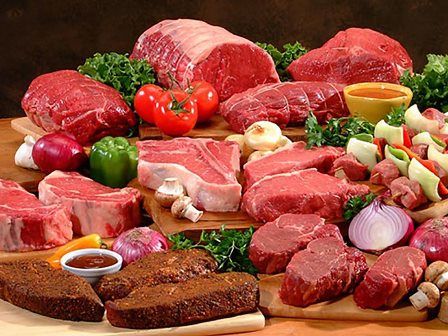
Meat is back on the menu in South Africa
Meat prices in South Africa are continuing their downward trend, according to the Bureau for Food and Agricultural Policy (BFAP) – but vegetable prices are still tracking much higher.
According to the BFAP’s latest monthly Food Inflation Brief for June, food prices in general continued to move lower in South Africa, decreasing 1.7% from May. This is tracking the international FAO Food Price Index, which was also down by 2.7% month-on-month.
The main contributor to lower prices was the drop in global cereals, oilseed and some meat prices. Pressure on these prices has eased as global energy and input costs have finally hit their peak, and actual prices have started moving lower, the BFAP said.
Looking at the global meat price index, the group noted that this was largely flat as the increase in quotations for poultry and pork was offset by a decline in bovine and ovine (sheep meat) prices.
Locally, however, meat prices have continued to drop. Weaner calf prices showed the largest decline (-5%), followed by pork (-2%) and poultry (IQF pieces, -1%), the group noted.
The following meats are seeing prices drop at the moment:
- Beef rump
- Beef brisket
- Beef chuck
- Beef stew
- Beef offal
- Pork chops
- Pork ribs
- Mutton/lamb rib chops
- Mutton/lamb loin chop
- Mutton/lamb leg
- Mutton/lamb stew
Conversely, there are still meat types that are experiencing price increases; these are:
- Bacon (20%+ YoY)
- Whole chicken (20%+ YoY)
- Chicken giblets (20%+ YoY)
- Corned beef (20%+ YoY)
- Chicken portions (10%+ YoY)
- Ham (10%+ YoY)
- Beef extract (10%+ YoY)
- Fish fingers (10%+ YoY)
Looking at vegetables, the BFAP said there had been some “interesting movements” in pricing for some of the more regularly consumed veggies like cabbage and tomatoes.
“Lower throughput of potatoes, onions and to a lesser extent tomatoes were recorded on the municipal markets for May 2023 compared to 12 months prior, while 5% more cabbage was sold on the 20 municipal markets.
“However, for June 2023, 24% more cabbage was sold, resulting in a price decrease from R3.20/kg to R2.81/kg. Tomatoes followed a similar trajectory as volume on the market increased – both month-on-month and year-on-year.
“As a result of higher volumes and greater quantity on hand, tomato prices dropped by 23% in June 2023 compared to June 2022, and by 15% month-on-month. Interestingly enough, the value of tomatoes traded remained on par to June 2022 at R175 million, but 5,000 tonnes (+29%) more were sold.”
Given the data at hand, the BFAP said that there are some indications that prices are normalising.
For example, with onions, a key indicator is that there are larger quantities of unsold stock on hand, and prices have dropped by 20%.
Potatoes are an exception, however, with the prices still rising and volumes dropping – indicating stock moving faster through the market. However, the BFAP said these prices should start dropping by September 2023.
While these trends are happening on the macro level, the group warned that it may not yet be reflected on shelf prices in-store.
“If consumers aren’t observing similar trends in the supermarkets, it could be the result of contracted prices with direct suppliers being upheld or that supermarkets are recovering some incurred costs before passing the applicable savings on to consumers,” the group said.
Given the budgetary constraints experienced by households in South Africa – as well as the rising cost of groceries and food prices in particular over the past year – many have listed expensive meat, chicken and fish as some of the key items they’ve had to cut back on to stretch their incomes.
News Category
- International retailers
- On the move
- Awards and achievements
- Legislation
- Wine and liquor
- Africa
- Going green
- Supplier news
- Research tools
- Retailer trading results
- Supply chain
- Innovation and technology
- Economic factors
- Crime and security
- Store Openings
- Marketing and Promotions
- Social Responsibility
- Brand Press Office
Related Articles

Shoprite increases executive pay as consumers t...

Unions slam SA retailers for ‘profiteering’ as ...

Major Petrol Price Changes on the Horizon

Retailers not cutting food prices fast enough -...


